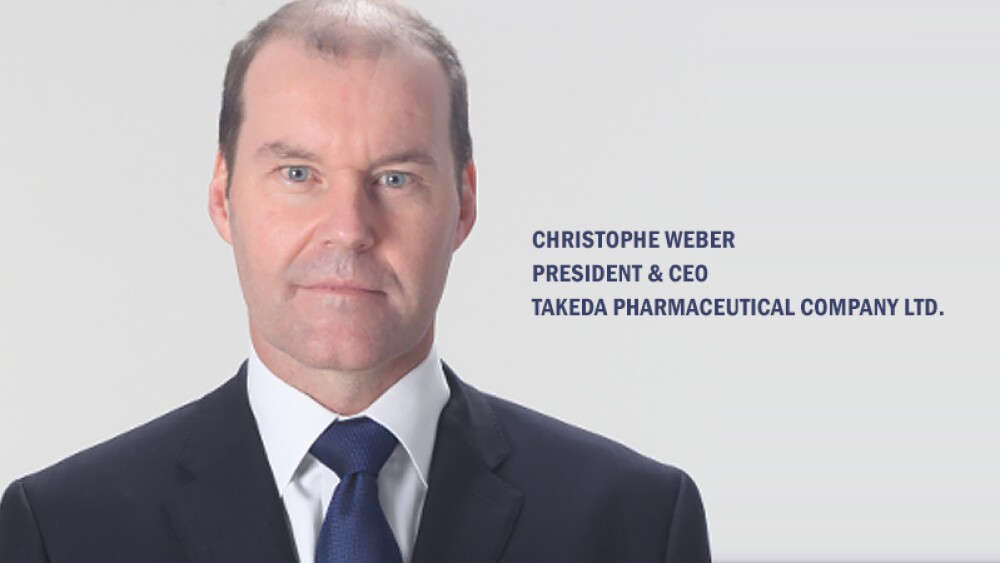June 29, 2017
By Mark Terry, BioSpace.com Breaking News Staff
At the close of Wednesday’s shareholders meeting, Takeda Pharmaceutical’s chairman, Yasuchika Hasegawa, retired. He planned to remain with the title of “corporate counselor,” but that became something of a contentious issue among stockholders, who are not pleased with the company’s dismal earnings. The corporate counselor appointment was rejected and Hasegawa noted that he was “painfully aware” of his responsibility and he apparently plans to leave the company’s turnaround to president Christophe Weber.
Nikkei Asian Review writes, “The company’s many problems include falling profitability. Consolidated net profit came to 114.9 billion yen ($1.02 billion) for the year ended March 31. Astellas Pharma earned twice as much while ringing up less in sales. Weber himself acknowledges improving margins as Takeda’s top priority. Net profit was down from the 285.3 billion yen of fiscal 2003, the year Hasegawa became president. Market capitalization and sales were barely better or a little bit worse.”
The company acquired Cambridge, Mass.-based Ariad Pharmaceuticals in January for about $5.2 billion. Ariad has two targeted therapies that fit well in Takeda’s oncology portfolio, Iclusig for chronic myeloid leukemia (CML) and a subset of acute lymphoblastic leukemia (ALL), and brigatinib, still in trials for a subset of non-small cell lung cancer (NSCLC) patients.
And in April, Takeda signed a global collaboration deal with Somerville, Mass.-based Finch Therapeutics to jointly develop FIN-524, a live biotherapeutic product made up of cultured bacterial strains that has been associated with favorable clinical outcomes in research of microbiota transplantations in inflammatory bowel disease (IBC). Takeda paid $10 million upfront.
“We partner with the most innovative scientists and companies in GI research to speed the discovery and development of new therapeutic options for patients with GI diseases,” said Gareth Hicks, head of gastroenterology drug discovery for Takeda, in a statement at the time. “The truly innovative approach to therapeutic design established by Finch and the foundation of clinical evidence underlying FIN-524 make us excited to be working with our new partners in this rapidly developing field of medicine.”
Although the Ariad deal was criticized, Weber went ahead, citing that Ariad was the only acquisition in his three years with the company, and that Takeda needed drug candidates.
Weber, in a somewhat counterintuitive fashion, has cut the company’s research-and-development operations, and along with Andrew Plump, the director of R&D, consolidated global research functions into the U.S. and Japan. About 100 of the company’s primarily young Japanese researchers were transferred to labs in Boston. The goal apparently was with Cambridge, Mass. being the biggest hub of biotech companies in the U.S., they would develop personal connections and collaborations.
Nikkei Asian Review writes, “Japan used to account for a fifth of the global pharmaceutical market but has now shrunk to just five percent, Weber said. Efforts to internationalize the two-century-old Japanese drugmaker have yielded a management where three out of four inside directors are foreigners, along with two-thirds of senior executives. The majority of the group’s sales and workforce—the latter has doubled since fiscal 2003 to nearly 30,000 people—are also outside Japan. But earnings have languished, and employees have wearied of the constant reforms.”
It seems Weber has his work cut out for him.





